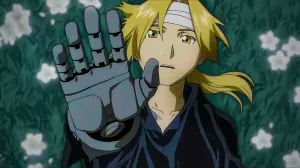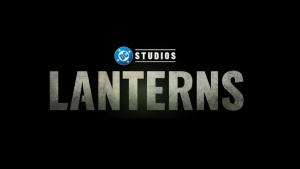Animal Pound #1 introduces readers to a new take on one of the most popular novels in American English classes: George Orwell’s Animal Farm. The new miniseries from writer Tom King and artist Peter Gross maintains the fable-like quality of the original and establishes the foundations for a political allegory within a modernized framework. In this iteration the animals are domesticated pets kept at a pound to be adopted or euthanized. Although cats, dogs, and rabbits (along with their human jailers) form a clear class structure, Animal Pound #1 avoids specificity in its first outing focused primarily on a broadly defined revolution. It’s in the telling of that revolution and the brilliantly grounded visuals that it finds its charm, and the hope that its literary ambitions will be discovered in later issues.
Videos by ComicBook.com
The debut issue is worth engaging with simply for Gross’s outstanding artwork accompanied by Tamra Bonvillain’s exceptional colors. They ground the narrative within characters and a setting that reflects reality. The pound is dull and unadorned, defined by geometric forms and nearly endless cage doors; the animals portray the diversity found within domesticated companions and emphasizes their anatomy and movement to recognize them. Rather than making dogs and cats seem alien, the expressive nature of their forms and faces reflects those many of us love in life. It makes them instantly sympathetic on the page and does not seek to immediately anthropomorphize their plight. Those concerned with animal rights will see their horrific plight as being terrible on its face without any additional consideration.
That style also enhances the revolution presented in Animal Pound #1. Recognizing the power imbalance between animals and humans makes the stakes of a relatively minor stake appear immediate and daunting. There are no superpowers or miracles found within the action, which makes it much more suspenseful with the possibility of failure hanging about each panel. Regardless of whether the series’ political commentary is successful, this issue succeeds purely in the form of adventure comics. The planning and execution of a mass escape contained by the very real limitations of caged animals lacking opposable thumbs makes it all the more thrilling.
This visual style is contrasted by aloof narration framing these events within a broader context. It addresses topics of oppression, freedom, and class with academic language in a narrative fashion that effectively casts the project as following the tradition of Animal Farm. Although this omniscient narrator and its readiness to suggest lessons can be overbearing at points, this is not its core flaw.
Rather, it’s the broadness of this narrative combined with such specific language that leaves it in search of a point. While the various groups of animals form broadly-defined, class-based swaths of humanity revolting against an oppressive ruling group, it’s difficult in Animal Pound #1 to perceive a point of reference to these events. Whereas Animal Farm is a specific critique and analysis of the Russian Revolution (and subsequent failures of the Soviet Union in achieving that revolution’s aims), this work seems to be broadly aimed at populist revolutions in general. Despite the profoundly unjust conditions imposed upon these animals, the underlying sentiment seems to simply be that revolutions are doomed to failure – a dispiriting and cynical notion not found in this series’ inspiration. It is entirely possible that the historical framework for this modernized allegory will grow more apparent as it continues, but in Animal Pound #1 it undermines the story, drawing broad conclusions about human society within a very specific context.
Although the self-evident comparisons drawn by Animal Pound‘s very title draw attention to the debut’s literary weaknesses, it also sets the bar for literary comparison exceptionally high. The cartooning and craft apparent in Animal Pound #1 is more than sufficient to draw in readers curious about its ambitions and retain readers interested by such effective depictions of animal life.
Published by Boom Studios
On December 13, 2023
Written by Tom King
Art by Peter Gross
Colors by Tamra Bonvillain
Letters by Clayton Cowles
Cover by Peter Gross and Tamra Bonvillain








